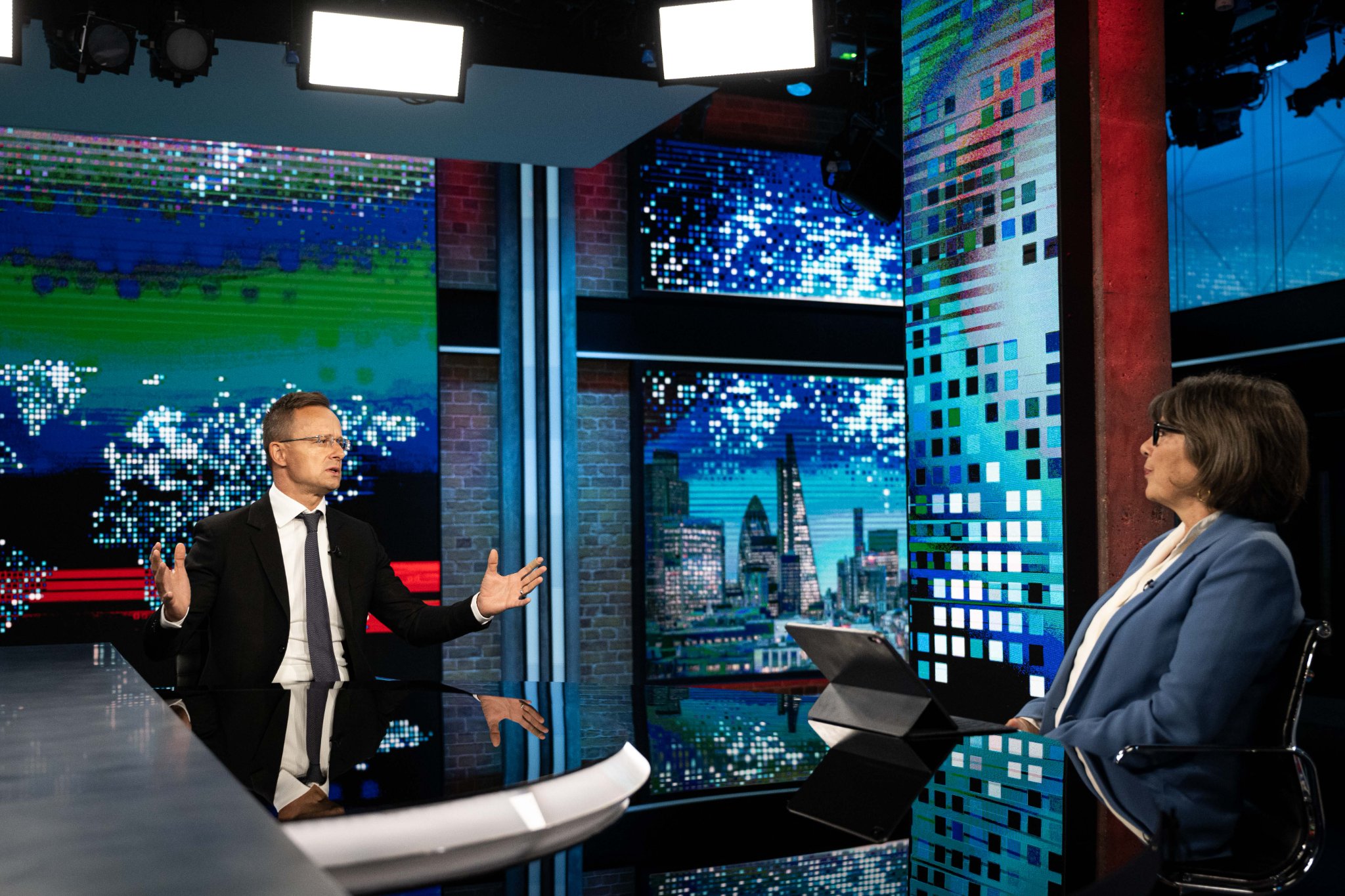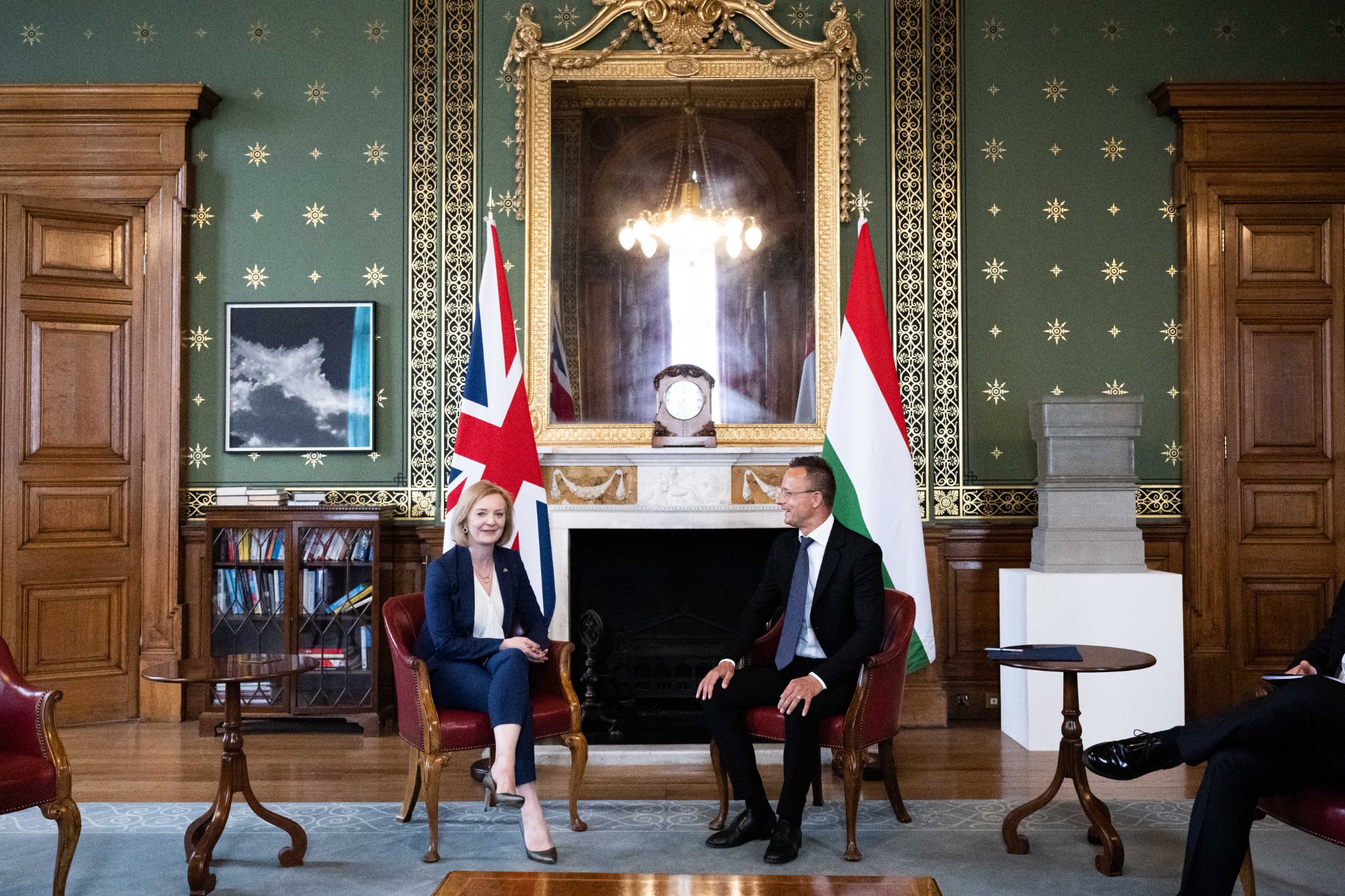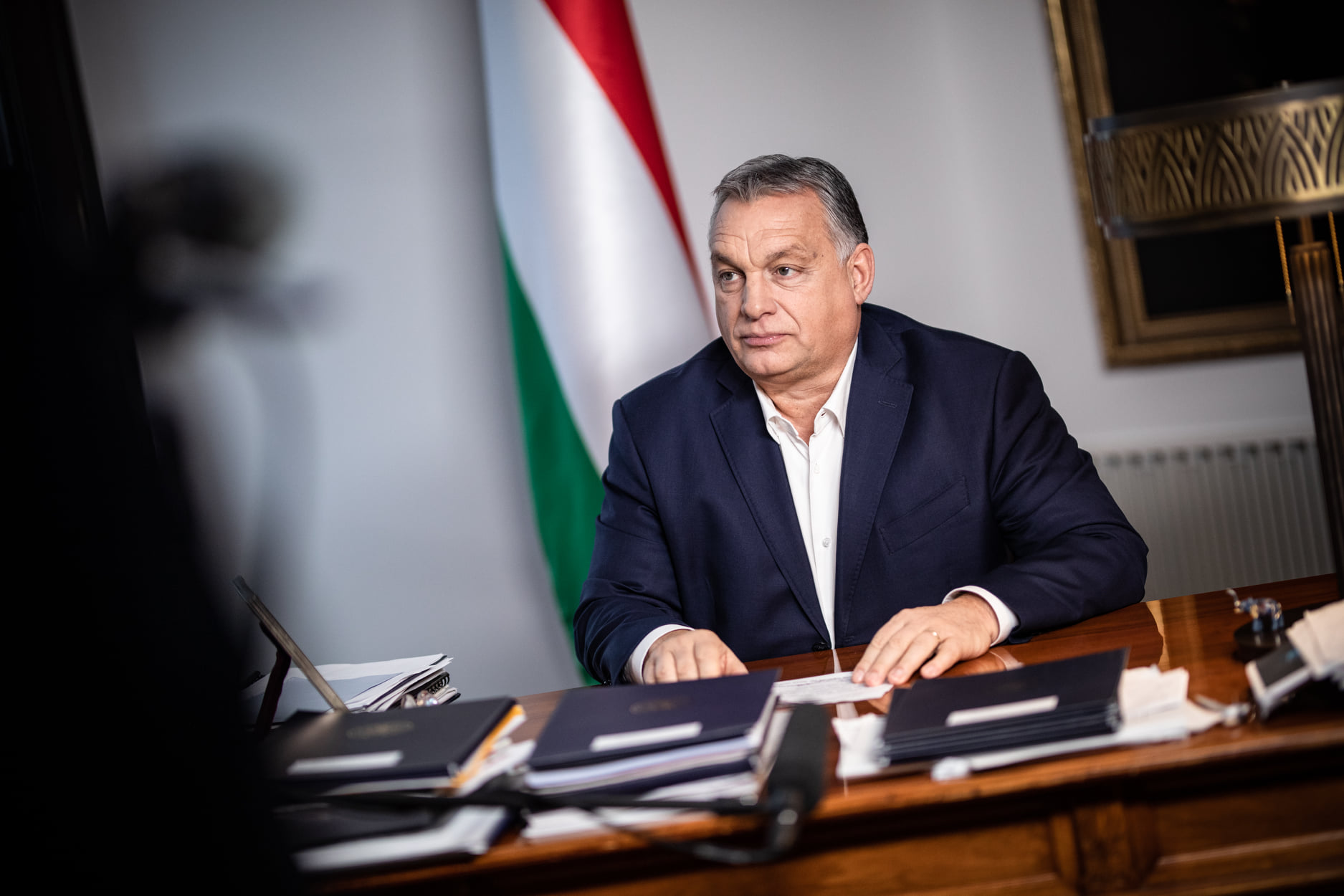
Foreign Minister Péter Szijjártó talked to CNN‘s Christiane Amanpour in London about the Ukrainian war, the oil embargo, refugees and “illegal migrants,” Republicans, and more.
Where does Hungary stand?
“Every minute spent with the war in Ukraine constitutes a security hazard for Hungary,” said Minister Szijjártó about the conflict, adding that Hungary “stands by Ukraine,” and its “territorial integrity and sovereignty.” The Foreign Minister added that since there is still a growing number of refugees arriving in Hungary, that means that the war “is not going to end too soon.”
Russian gas and oil embargo exception
According to Szijjártó, Hungary has a very small share of European purchases of Russian fossil fuels. Moreover, he continued:
Energy supply is a physical question. It is not philosophical, it is not political, it is not ideological. […] In case we had not asked for it [the oil embargo exeption], in case we had not got it, it would be physically impossible to supply the country with enough oil. It is a matter of mathematics. […]”
The Foreign Minister also stressed that “in order to change the massive East-West delivery routes to North to South routes in Central Europe, you need a couple of years. […] The question is whether you can replace Russian oil or Russian gas in order to maintain your own country’s needs. Currently, our answer is ‘no.’ The answer is not ‘no’ because we do not want it, it is ‘no’ because physically, it is impossible.” Szijjártó also added that they would not like to force the Hungarian people to pay for the price of the war either.
Related article
Foreign Minister Szijjártó Hails Post-Brexit Hungary-UK Cooperation
"We receive a lot of bad news and face many challenges each day. This situation makes friendships, predictable relationships and stable partnerships like that of the United Kingdom and Hungary all the more valuable," Szijjártó remarked.Continue reading
Weapons, refugees, and “illegal migrants”
Amanpour noted that Hungary has also “gone the extra mile” by saying there should be no sanction against Patriarch Kirill, “…the Russian patriarch of the Orthodox church who supports Putin.” She also noted that Hungary does not send weapons to Ukraine.
President Zelenskyy’s message to Prime Minister Orbán about Mauripol and mass killings was also brought up during the interview. Szijjártó believes that it was a “very unfair statement,” because Hungary is “carrying out the largest humanitarian relief in the history of our country. We have received 830,000 refugees from Ukraine.”
Szijjártó said that since Hungary “decided not to deliver weapons, the Hungarian-Ukrainian border offers the safest passage when you cross the Ukrainian border from the West, from their perspective. That is why the International Red Cross operates its logistic hub from Hungary to organize its activities in Ukraine. […] Whenever humanitarian deliveries cross there, everyone can be sure it is not weapons, so these deliveries are not in danger.” The politician added that 150,000 Hungarians live in the Western part of Ukraine. “It is obvious that in case we would deliver weapons, then these weapon deliveries would be targets for the Russians. We do not want them to shoot into areas where Hungarians are living. We would not like to be involved in this conflict.”
Related article
Orbán-Zelenskyy Talks: Hungary Supports Ukraine's EU Aspirations
The discussion of the two leaders focused on Ukraine's bid to join the European Union and Hungary's welcoming of war refugees, as well as other areas of Hungarian-Ukrainian cooperation.Continue reading
In Amanpour’s view, while “Ukrainian, white, Christian refugees” are being accepted, they highlight the issue of not allowing “not so white, not so Christian refugees coming in from the southern border,” which is Hungary’s border with Serbia and “the external border of both the European Union and the Schengen area,” as Szijjártó recalled. He said that the major difference is that those coming from the southern border are not refugees, they are illegal migrants. Szijjártó said that they are not fleeing from war, they “cross at least six, seven, eight, or even more safe countries,” while Ukrainians flee to the first safe country. “They have no reason to violate the border between Serbia and Hungary.” According to Szijjártó, these people are also “behaving more and more aggressively,” unlike the Ukrainian refugees. He also said that Hungary “had stopped 110,000 illegal migrants already this year.”
At the end of the interview, Christiane Amanpour mentioned a New Yorker article that “details how some Republicans would like to replicate Orbán’s model of illiberal democracy.” Szijjártó said: “I am coming from a Central European landlocked country with less than 10 million inhabitants. Considering this, it is an honor that we are kind of highlighted as a country which can have an influence on the domestic political situation in the United States.” He added that “we definitely do have a very very strong cooperation with them [the Republicans].” He mentioned a recent consultation with Republicans about the global minimum tax, “which both of us oppose.” He concluded by saying that “we are crossing our fingers for the Republicans.”
The full interview can be viewed below or by clicking here.
Featured image via Péter Szijjártó’s Facebook page


